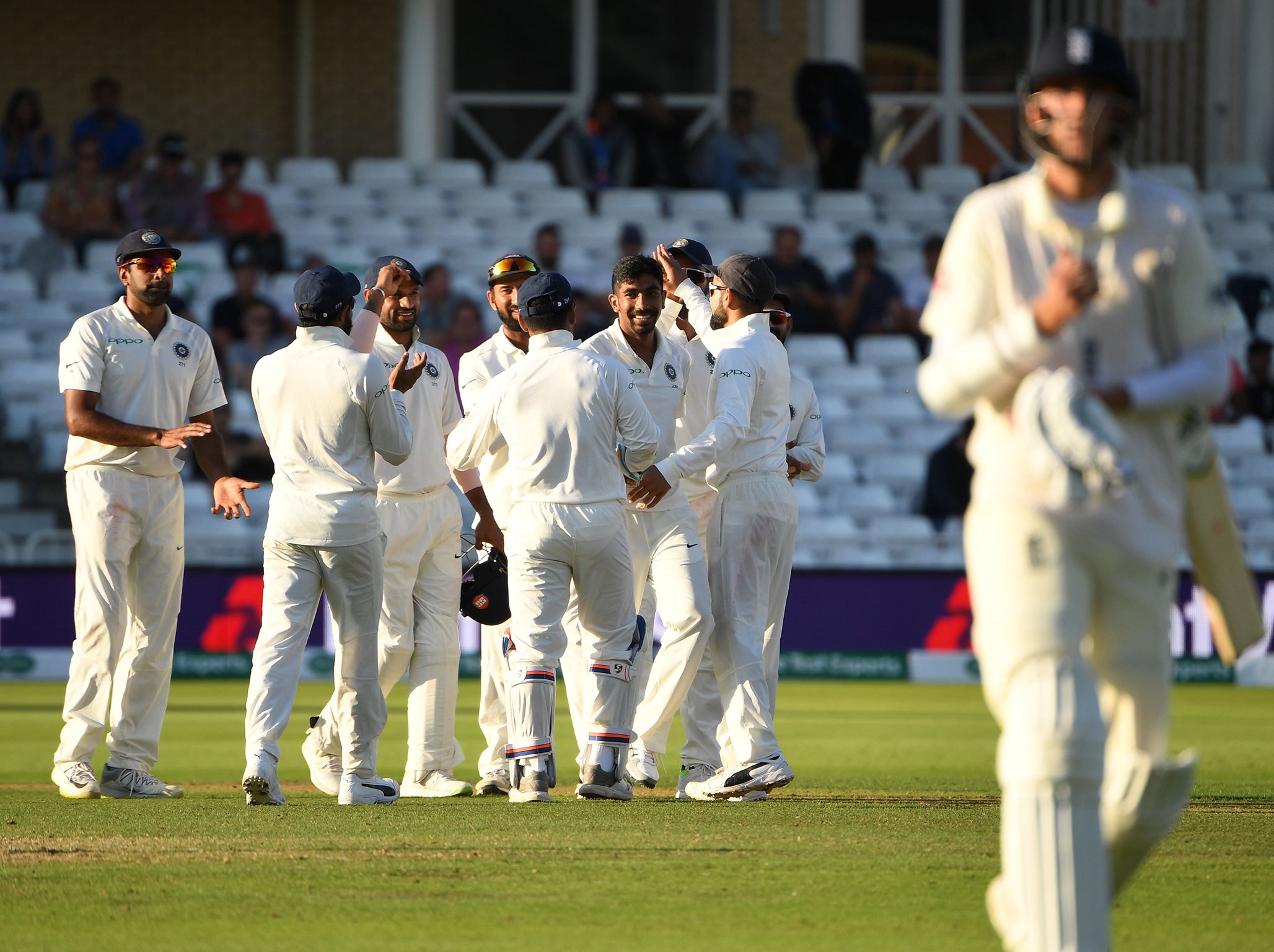Jos Buttler emerges from the Test wilderness to savour a century he thought he would never enjoy
There were long days and nights when Buttler wondered not only whether he would ever get another chance at Test cricket, but whether he was even capable of taking it

Your support helps us to tell the story
From reproductive rights to climate change to Big Tech, The Independent is on the ground when the story is developing. Whether it's investigating the financials of Elon Musk's pro-Trump PAC or producing our latest documentary, 'The A Word', which shines a light on the American women fighting for reproductive rights, we know how important it is to parse out the facts from the messaging.
At such a critical moment in US history, we need reporters on the ground. Your donation allows us to keep sending journalists to speak to both sides of the story.
The Independent is trusted by Americans across the entire political spectrum. And unlike many other quality news outlets, we choose not to lock Americans out of our reporting and analysis with paywalls. We believe quality journalism should be available to everyone, paid for by those who can afford it.
Your support makes all the difference.A day he thought would never come, a moment he thought he would never enjoy, a century he had long given up hope of making. As Jos Buttler lifted off his sweaty helmet and raised his bat to the Trent Bridge balcony, 103 unbeaten runs to his name, he reflected on a journey that had cast him into the Test wilderness, and now back again.
Buttler’s maiden Test century against India, more than four years after his sparkling debut against the same opposition in Southampton, will not save England from defeat in the third Test. But in the long run, it may prove just as important, for subtly different reasons. In Buttler’s words, it was an innings that made him feel like he “belonged”.
There were long days and nights when Buttler wondered not only whether he would ever get another chance at Test cricket, but whether he was even capable of taking it. When he was dropped after the 2016-17 tour of India, with just one fifty in his last 18 innings, Buttler suspected he had finally discovered his limitations, that the longest form of the game may even have worked him out.
Instead, Buttler worked himself out. His time at the Indian Premier League forced him into a position of seniority: a marquee overseas player responsible for opening the batting, mentoring younger players and delivering consistently. A conversation with Shane Warne at the Rajasthan Royals persuaded him he still had a chance of making it in Test cricket. And when a surprise call from national selector Ed Smith popped up on his phone, Buttler realised it was not just an opportunity, but a form of validation. For Buttler, the biggest barrier to performing was believing he could perform. Now, he no longer had any grounds for self-doubt.

“All those thoughts go through your head while you’re out there, as well,” he said at the close of play. “I was never sure if I’d ever play Test cricket again. There were definitely times when I felt my race was run. You’re trying to concentrate on the ball, and you’re thinking: I never thought this would happen.”
Fortunately, Buttler did not allow himself too much time to dwell on it. He clipped his way from 91 to 103 in the space of four balls, having built his platform during a tough early spell at the crease, coming in with the score 62-4 and India’s seamers making the ball bounce, bite and swing. And as he ground his way through the innings, Buttler realised just what he had been missing during those years as a white-ball specialist.
“I remembered how hard Test cricket is,” he said. “It tests you in all sorts of ways. It’s a big moment for me. It just proves I can do it. It has been a long time coming, and a few months ago it was a million miles away. To prove that you can do it, not just for yourself, but for your team, is the biggest thing. To feel like hopefully, you belong. It’s a huge moment. I’m a little bit lost for words, but delighted.”
For Buttler and England, the real test starts now. This match is almost certainly lost, but in challenging conditions Buttler showed what can be done against this Indian attack. Now not only does he need to follow it up, but so do his team-mates. There is a pleasing circularity in the fact that England’s next game is at Southampton, where Buttler announced himself so spectacularly. And on what is expected to be a much better batting surface, Buttler’s application and controlled aggression must be the model for England to follow.
“Go out and play like Jos Buttler, lads” may seem a wildly optimistic strategy when only a fraction of cricketers can approximate his natural talent. But there are learnable elements from Buttler’s tale. Joe Root could certainly take some tips on curbing his natural instincts to fit the match state. England’s openers could borrow a little of Buttler’s game-management: recognising when the momentum is changing and seizing on it.

And white-ball specialists the world over - Jason Roy, Glenn Maxwell, Kieron Pollard, Jofra Archer - will be studying Buttler’s remarkable resurrection and wondering, in a flawed global game, whether the path to Test cricket really is as long and thorny as they might have imagined.
You only had to look at Buttler’s face as he reached three figures. This is a batsman who may have conquered the limited-overs game, whose feats in white-ball cricket will endure long after he has finally hung up his bat with the words ‘F--- IT’ daubed on the handle. But for all that, nothing ever quite nudges the emotions like your maiden Test match hundred. “There’s a lot more fulfilment,” he said. “It’s definitely my proudest moment in an England shirt.”
Join our commenting forum
Join thought-provoking conversations, follow other Independent readers and see their replies
Comments